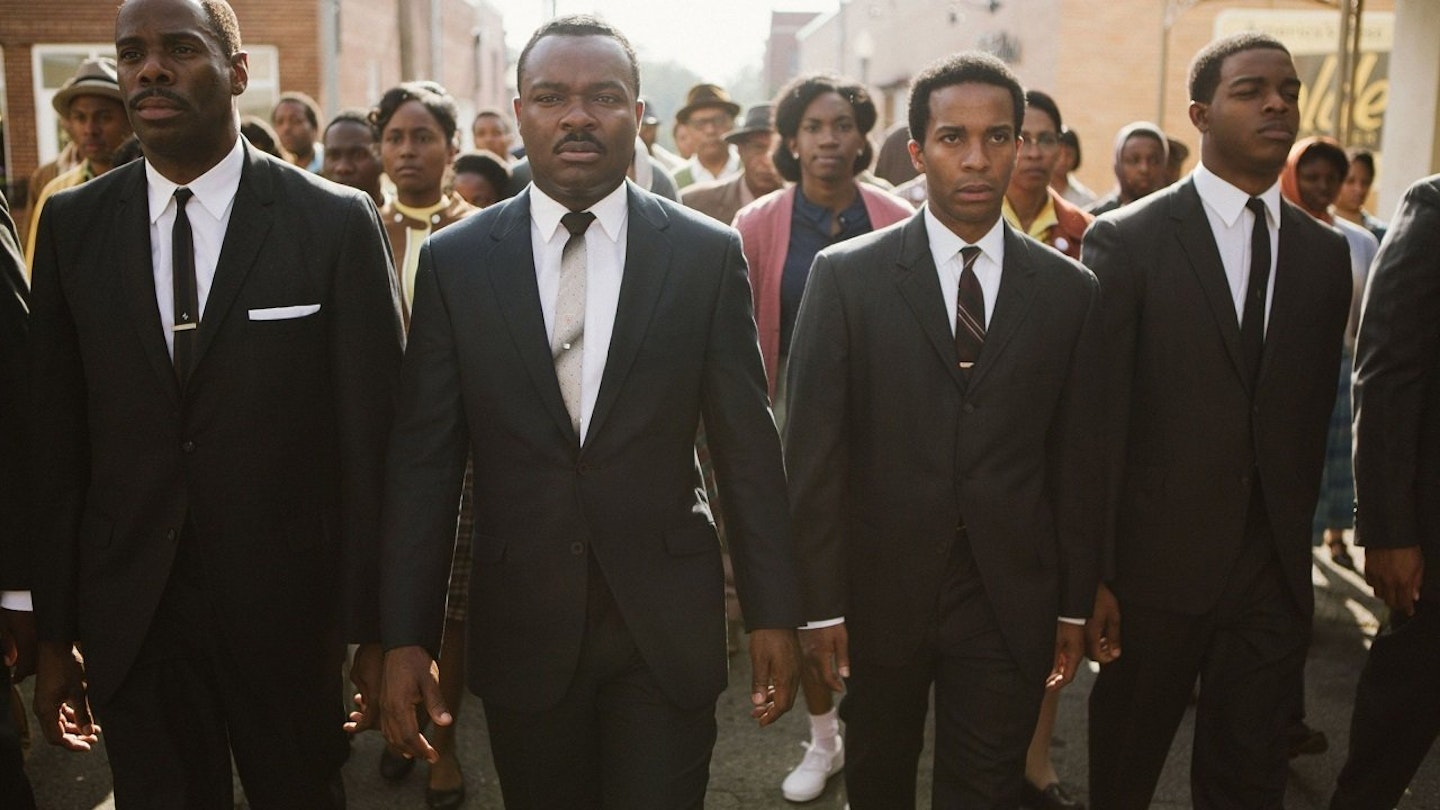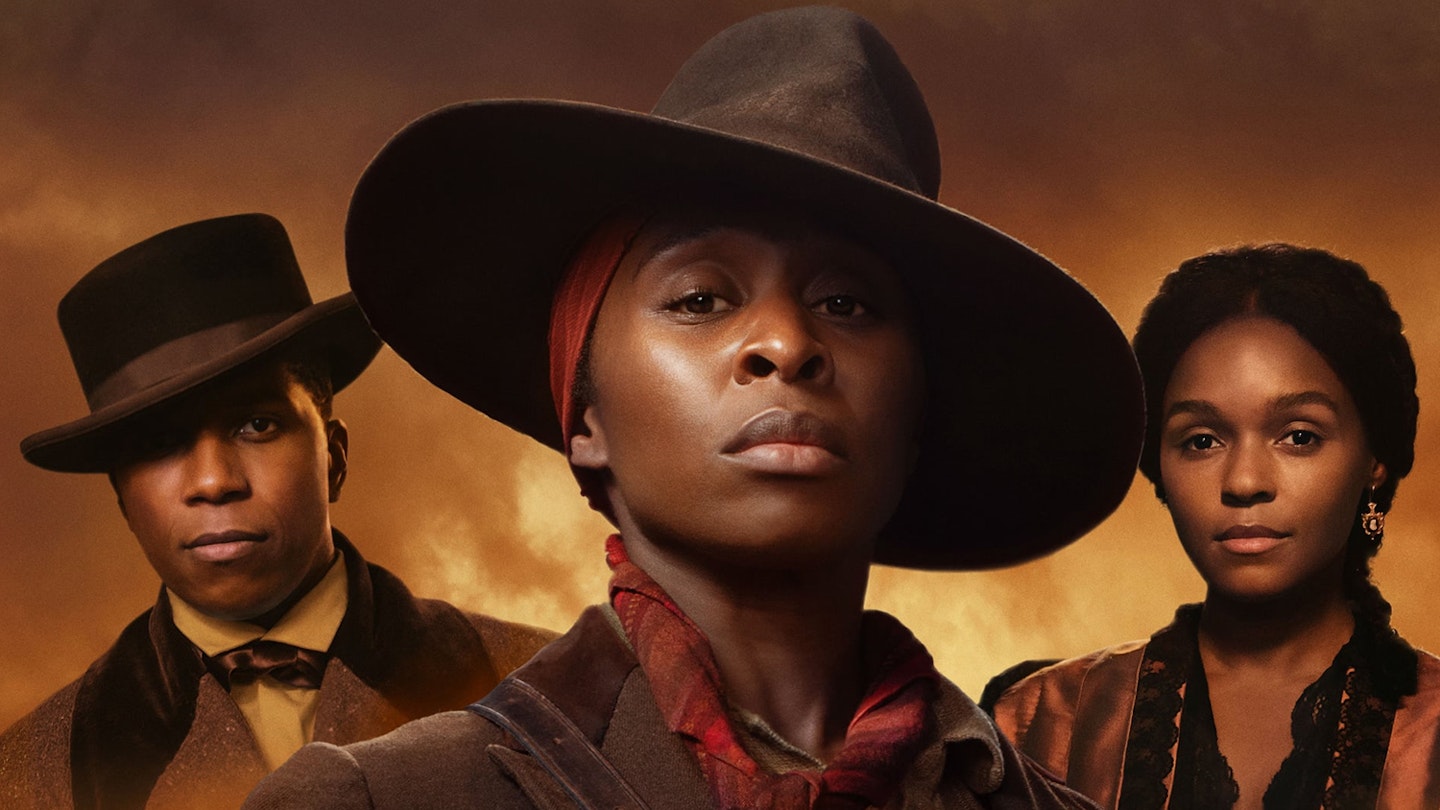If you’ve paid even scant attention to news from the USA of late, there are images in Selma, Ava DuVernay’s powerful depiction of the peace march that did so much to advance civil rights in the 1960s, that could have come straight from Ferguson or mobile phone footage that captured Eric Garner’s horrific death. At one point, a young black man is shot at point-blank range by a white cop, while later on another bigot with a badge exercises the sort of chokehold that recalls Garner’s real-life, tragic cry of, “I can’t breathe.” These sequences make for deeply uncomfortable viewing, not just because they’re raw and violent images, but because they suggest that in 50 years, we may have come so far, but there’s still quite a way to go.
Yet Selma is not a film made to score political points. Instead, it shows precisely just how far America has come in addressing the egregious injustices meted out to African-Americans in the ’60s; it exists to celebrate the strides taken by the likes of Dr. Martin Luther King Jr. and his supporters, and lament their sacrifices, and it is, despite some notable flaws, a deeply affecting, sometimes horrifying, ultimately inspirational movie. Those flaws can partially be attributed to the threadbare budget — a dramatic cast-of-thousands moment should be stirring, but is marred by dodgy CG — but it’s also shot and staged, for the most part, in a rather plodding, perfunctory manner. Yet directing isn’t just confined to knowing how to move a camera. In DuVernay, Selma has one heck of an actor’s director, and in David Oyelowo’s lead performance, she has cultivated a possible Oscar-winner and a performance for the ages.
Selma chooses to focus on one of the most important fights of King’s life, but it is not an MLK biopic — we meet the good doctor after his “I have a dream” speech and we leave him before his assassination in Memphis in 1968 — but King, as you might expect, dominates proceedings. Oyelowo, his rich English accent completely subsumed by an uncanny approximation of Dr. King’s mellifluous tones, is utterly convincing throughout, both in scenes where he unites crowds with his gripping oratory, and quieter moments where we see the man’s fragility. One scene, where he comforts the bewildered, recently bereaved eldery father, will tear your heart out. It may not quite be a warts-and-all look at King, as Paul Greengrass’ oft-mooted and currently in-limbo Memphis might have been, but it acknowledges his infidelities and his occasional helplessness in the face of such overwhelming odds, and shouldbe applauded for that at least.
Oyelowo is backed by a rich supporting cast, including executive producer Oprah Winfrey, dignified in the opening scene where she is denied the right to vote by a racist bureaucrat throwing up roadblocks in her face, while the Brit duo of Tom Wilkinson, as Lyndon B. Johnson, and Tim Roth, as Alabama governor George Wallace, also do fine work. There has been some controversy in the States about how the film turns a blind eye to LBJ’s commendable contribution to the civil rights movement, but Wilkinson nails the man’s essential dignity, while Roth has fun turning Wallace into a hissable panto villain. But it’s Oyelowo’s film, and when he’s not on screen, the film’s urgent march notably stalls.








